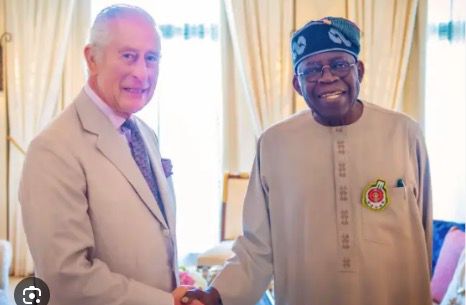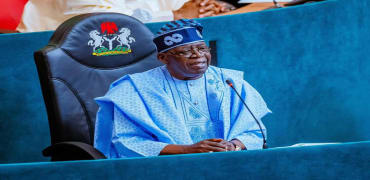With the UK currently in the middle of a general election campaign, Nigeria should have tried to influence the foreign trade debate and shift the emphasis away from the xenophobic rhetoric of limiting immigration
With the UK currently in the middle of a general election campaign, Nigeria should have tried to influence the foreign trade debate and shift the emphasis away from the xenophobic rhetoric of limiting immigration
Ayo Akinfe
[1] Our leaders are always trying to cash in on the fact that Nigeria will forever be the primary investment destination in Africa from where everyone can reach out to the rest of the continent. What we have not done, however, is get this thinking institutionalised so we influence the foreign trade policy of industrialised nations
[2] Those of you who work in manufacturing and with blue chip companies know how things work. Most multinationals tend to have a Europe, Africa and Middle East division. When it comes to locating a manufacturing facility, they group Africa and the Middle East together when they want to make a major investment. Over the years, Nigeria has benefitted from this immensely
[3] Just to give a few examples. Peugeot Automobile and Volkswagen both have vehicle assembly plants in Nigeria. Historically, the likes of Coca-Cola, Seven-Up, Cadbury’s, Tate & Lyle, etc have all had facilities in Nigeria. They overlooked the rest of the continent and Middle East and located their facility in Nigeria because it guaranteed the best return in investment despite our plethora of socio-economic woes
[4] No matter how you look at it, Nigeria simply has too many factors in her favour when it comes to locating production facilities in Africa. We are located in the centre of the continent, have air links to everywhere, have the biggest domestic market, have an educated workforce and speak the world’s lingua franca, the English language
[5] One area where we are lagging behind terribly and which has not led to the acceleration of this process is with the production of raw materials. If Nigeria was producing thousands of tonnes of iron ore, stainless steel, sheeted glass, processed rubber and plastic sheets each, probably every automobile company in the world would have a manufacturing facility and car assembly plant there. If you can supply all the materials a company needs locally along with a workforce, you are virtually home and dry
[6] If you ask me, iron ore is the most important of these components. Do you know that in neighbouring Cameroon, over 600m tonnes of iron ore can be found in Mayo Binka, in Donga Matung Division in the northwest of the country? Every single tonne of that should be shipped to Nigeria and processed
[7] With numerous manufacturers like Nissan and Toyota thinking of pulling out of the UK due to their Brexit madness, President Tinubu should be wooing them to Nigeria with sweeteners like this. He should promise to gather as much iron ore as he can from across Africa so they are never short of raw materials
[8] Historically, companies have located to the UK because it guarantees them access to the European market. Now that the Brits have decided to press the self-destruct button and opt to live in splendid and xenophobic isolation, it is time for her former colonies to feed off the carcass. In Nigeria, we have no problems with our African neighbours and guarantee access to the Economic Community of West African States (Ecowas) market and other parts of the continent
[9] In southern Spain, the port of Almeira was built in 1904 by Scottish engineers for the sole purpose of shipping steel to Britain. At the time, Britain was industrialising heavily and needed more steel than she produced locally. Huge deposits were found in central Spain and the port was built to ship it with a railway line connecting Almeira to the mines. Today, the port is a major ferry facility and makes its money from Spain’s booming tourist trade. Nothing stops Nigeria building a dedicated iron ore port at somewhere like Ikot-Nakanda in Cross River State or Upenekamg or Oron in Akwa Ibom State to serve as Africa’s collection centre
[10] I am surprised no one in Aso Rock has put together an African Hunter and Gatherer Programme, under which all the raw materials available on our continent are gathered in Nigeria ahead of the launch of the world’s next Industrial Revolution. This should form the basis of our foreign direct investment policy and be used to influence the trade policies of industrialised nations


















